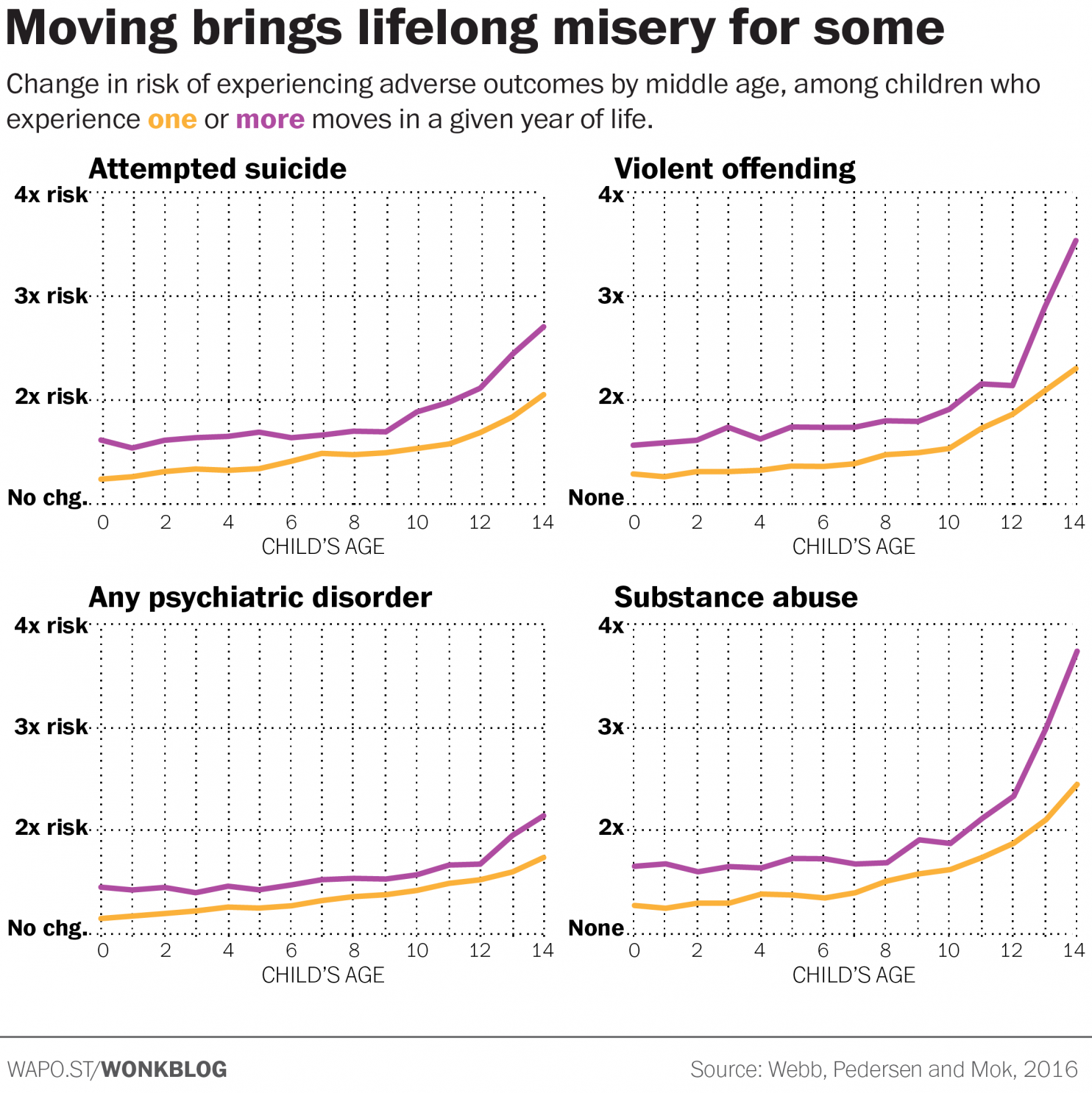How Moving as a Child Affects You as an Adult

By:
Like millions of Americans, I moved a lot as a kid. The transitions always involved a high level of stress for myself as well as my family, and I've long wondered how these routine moves could affect me as an adult.
 YouTube - ytimg.com
YouTube - ytimg.com
There's finally some research to show what could happen to adults who frequently moved as kids — and it's not pretty: Such adults are more likely to abuse drugs, commit violent crimes, attempt suicide, and develop a psychiatric disorder, according to a recent study published in the American Journal of Preventive Medicine.
Check out these graphics from The Washington Post, which compared the risk of four outcomes for adults who moved as kids versus those who didn't.
 The Washington Post - washingtonpost.com
The Washington Post - washingtonpost.com
Researchers at the University of Manchester based their study on an analysis of every person born in Denmark between 1971 and 1997 to Danish parents. That is to say, it was comprehensive.
The data consistently showed that frequent "childhood residential mobility" was associated with an increased risk in all four categories studied.
"Childhood residential mobility is associated with multiple long-term adverse outcomes," wrote Roger Webb, the study's lead author. "Although frequent residential mobility could be a marker for familial psychosocial difficulties, the elevated risks were observed across the socioeconomic spectrum, and mobility may be intrinsically harmful."
Those most likely to experience the long-term adverse outcomes were children in early to mid-adolescence, the researchers found. Kids who moved between the ages of 12 and 14 were at the greatest risk.
Importantly, the study found that this cause-and-effect relationship was dose-dependent. In other words, the more often a child moved, the greater their risk of experiencing the negative outcomes in adulthood.
"For example, data analysis showed that risk increased with multiple moves at any age versus a single move, and that an even sharper spike in risk for violent offending was observed with multiple relocations within a single year," according to a press release. The attempted-suicide risk increased steadily with rising age at the time of the move and was markedly raised if multiple annual relocations occurred during early adolescence (12–14 years of age)."
The researchers recommended that health and social services workers — in and outside of schools — "should be vigilant of the psychological needs of relocated adolescents, including those from affluent as well as deprived families."
